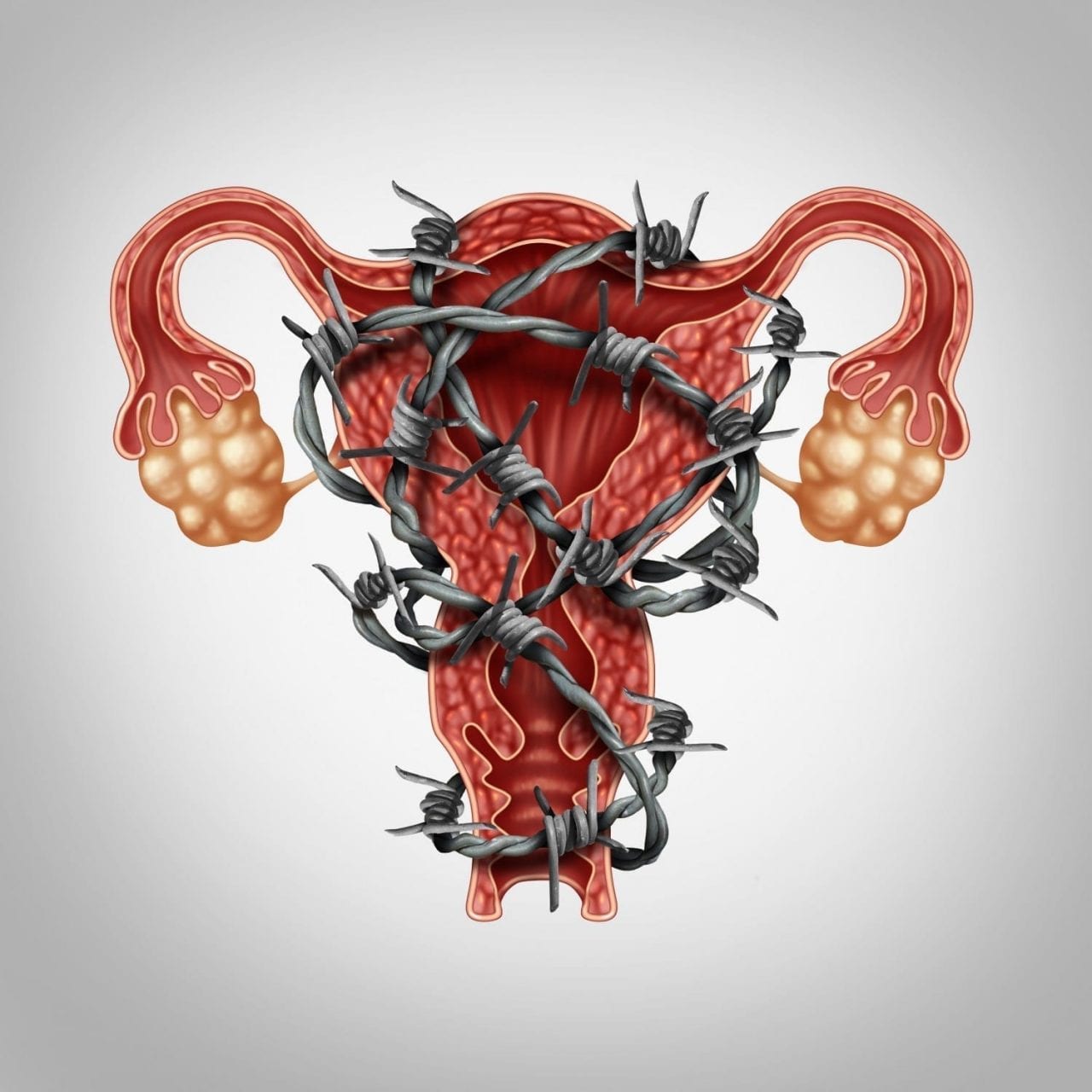Can you treat endometriosis naturally?
Endometriosis is becoming increasingly common and is one of the issues our patients most commonly seek help for. It occurs when the endometrial tissue (inside of the uterus) grows outside of the uterine cavity. Endometrial tissue is hormonally active, which means that under the influence of your hormones during your menstrual cycle the endometriosis lesions will proliferate and shed (bleed), causing pain and inflammation. In addition to this, over time this inflammatory process can lead to scarring and adhesions which can cause more discomfort and pain.
Pain is the most common symptom of endometriosis however some women do have the condition and do not experience pain. It is not known why this is, and pain levels do not necessarily relate to the amount or severity of endometriosis either.
Our naturopaths specialise in helping women with this condition, and in this article we will outline how it can help.
What causes endometriosis?
There are several theories about how endometriosis occurs, however, we don’t have a concrete answer yet. Originally, it was thought that retrograde menstruation was to blame, however, the presence of endometriosis in places like the joints and diaphragm have made researchers look elsewhere. Here’s what we do know.
Retrograde menstruation – a cause of endo?
Your fallopian tubes have a space between them and the ovaries, which can allow menstrual blood to flow backwards, up the fallopian tubes and into the uterus. Since most endometriosis occurs in the pelvic cavity, most commonly on the uterus, fallopian tubes, ovaries and the pouch of Douglas it’s likely that retrograde menstruation has a big role in endometriosis development.
We address this with naturopathy by supporting blood flow to the uterus and using herbs to clear any uterine congestion. This can show up as heavy periods or clotty periods.
Immune dysregulation and endo
Studies have shown that the immune cells in women with endometriosis differ from the normal population. The immune theory hypothesises that if the immune system was functioning normally then the endometrial cells should not be allowed to grow there in the first place, as the body would ‘clean’ them up. There is also a mounting body of evidence that shows that endometriosis may be autoimmune in nature. Watch this space.
Hormonal factors that drive endometriosis
Women with endo have often have high oestrogen levels, and imbalances with their oestrogen metabolism. Oestrogen is a driving factor in endometriosis – making the tissue proliferate and worsen endometriosis growth. When our naturopaths screen our endometriosis patients for all 3 types of oestrogen and their metabolites, we find the majority of women to have high levels of oestrogen and also more ‘proliferative’ 4-OH oestrogen metabolites.
Inflammation as a driver for endo
The inflammation that is produced by endometriosis drives further inflammation and tissue damage. The high levels of inflammatory cells can perpetuate inflammation and lead to more scarring and adhesions over time. It is considered a chronic, inflammatory condition.
Can you treat endometriosis naturally?
We have helped thousands of women with endometriosis at Shift Brisbane. Natural treatment for endo aims to address the issues outlined above – supporting healthy menstruation, reducing inflammation, clearing excess oestrogen/balancing hormones and improving immune regulation.
The important thing to remember is that you will have the best success with beating or managing your endometriosis if you use naturopathy and/or acupuncture concurrently when you are having laparoscopic surgery. When you have surgery alone, your recurrence rate is high as the driving factors are exactly the same, making it easy for your endo to recur. Treatment with natural therapies alone may assist some patients with very mild endometriosis to manage pain and support healing, however as endometriosis is pervasive to the tissue and easily proliferated, in our experience sometimes surgery is necessary to remove the lesions while the herbs and nutritional support can help prevent it from coming back.
Our naturopaths work alongside GPs, gyneocologists and fertility specialists to assist our patients with their endo.
How do I stop my endometriosis from coming back?
Laparoscopic removal of endometriosis usually helps the condition, at least in the short term. However for the majority of patients the endo will return over time and further surgery can be needed later in life, whether that be months or (usually) years down the track. From working with hundreds of patients with this condition we have found that the best success occurs when you receive naturopathic treatment for 2-3 months prior to surgery and also afterwards. The idea is that we want to balance hormone levels, reduce inflammation, have your immune system nice and healthy and have your period flowing free before surgery, so that the driving factors that may cause it to return are taken care of.
How does naturopathy work for endometriosis?
Our naturopaths take a landscape view of your health – this means we look at all of the relevant pieces when developing a treatment plan. This includes your history, details about your menstrual cycle and symptoms, a thorough understanding of your pain picture, looking at blood tests and also your dietary patterns.
Once we have this information we can then develop a treatment plan to address the issues which face you specifically, using herbal medicines and support and coaching to adjust your lifestyle.
How do I choose who to see?
Seeing a naturopath first is a good idea, as they will assess all of the potential driving factors behind your endometriosis. Our naturopaths can also order blood and salivary tests to look at your hormone levels and other factors. Both of our naturopaths, Vanessa and Katherine can help you with endo. Acupuncture is also a great idea to accompany treatment.
How do I make an appointment?
To make an appointment with a naturopath to look at your endometriosis call Shift on 07 3367 0337 or book online using the link below.



